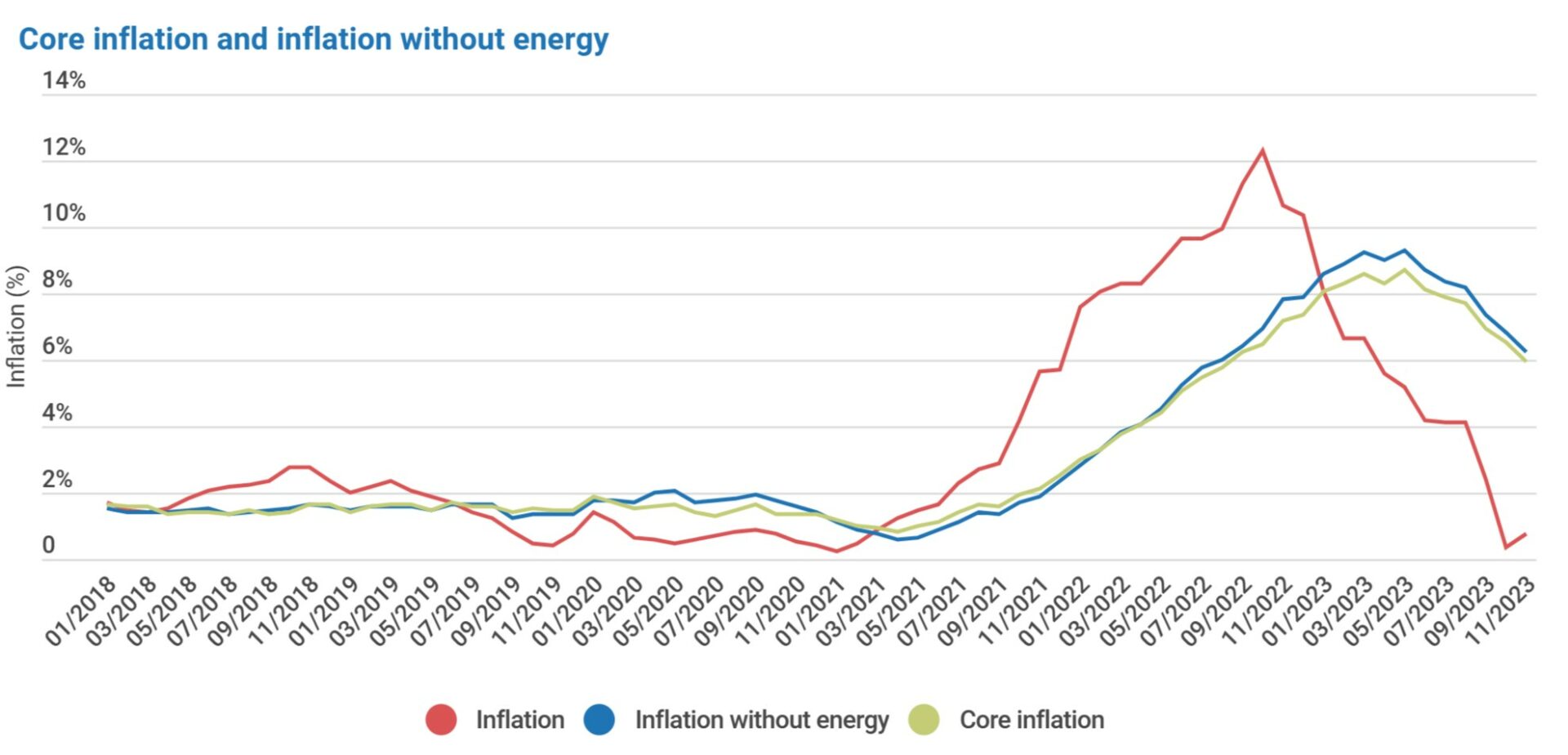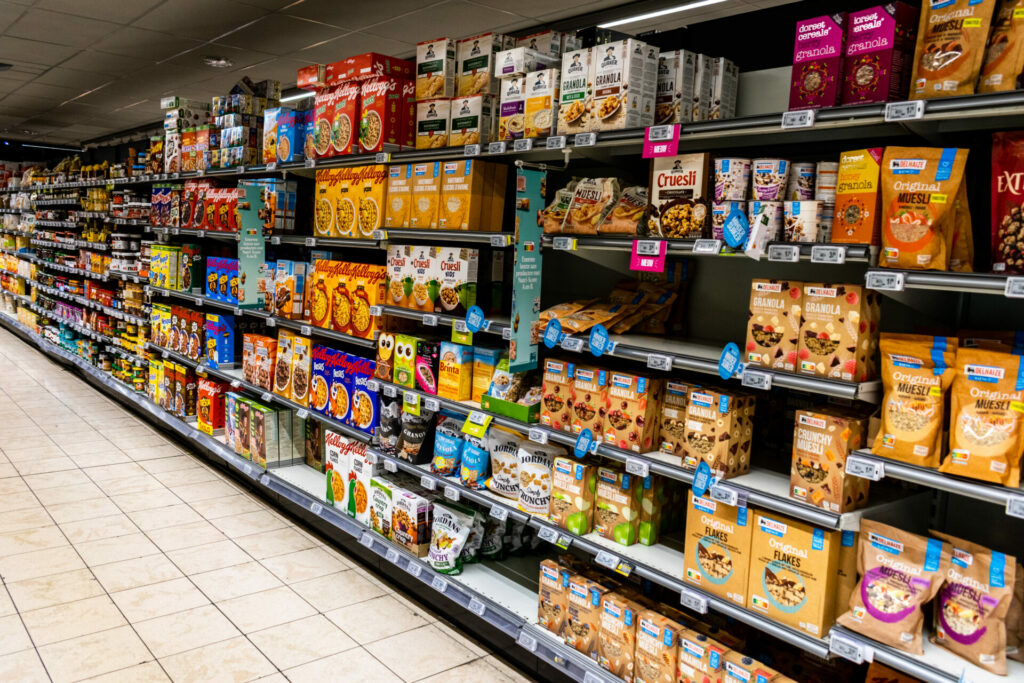Belgium's inflation rate rose for the first time in eight months in November, as increasing energy prices outweighed the impact of declining food costs on overall price pressures.
According to Statbel, the national statistics office, Belgium's annual headline rate grew from 0.36% in October to 0.76% in November: the first uptick since March this year.
Energy inflation, although still negative, increased 4.25 percentage points (from -37.15% to -32.90%). Food inflation, by contrast, dropped to 8.22% from 8.98%.
Promisingly, core inflation, which strips out energy and volatile food costs and is considered by many economists to provide a better measure of underlying price pressures, also declined, from 6.55% to 5.95%.
Belgium's core inflation rate has fallen steadily since peaking at 8.70% in May. Except for the aforementioned March uptick, headline inflation has also decreased fairly steadily since reaching a high of 12.27% in October last year.

Credit: Statbel
Commenting on the Statbel study, Associate Professor of Economics at Ghent University Stijn Baert emphasised that Belgium's inflation rate is well below the European Central Bank's (ECB) 2% target.
"An inflation rate of 0.8% is very low," he wrote on X (formerly Twitter). "If it continues over the coming months, which we do not expect, it is even too low. The ECB is aiming for a small 2%."
Baert also noted that a headline rate comfortably above zero is necessary "so that people do not delay purchases and the economy continues to run." (Economic doctrine says that if inflation drops below zero, consumers will refrain from buying goods in the hope of purchasing them later at a cheaper price.)
Related News
- Undesired debt: Low demand forecast for new Belgian government bonds
- Fast and frugal: Belgians pick fast food over restaurants due to high inflation
Furthermore, Baert pointed out that a key reason for the decline in the annual inflation rate is that current prices are being compared to last year's near-peak.
"We are now comparing with November 2022," he said. "Inflation was very high then. With prices that were 10.6% higher than a year earlier. We are now comparing with prices from then."
He added: "This also makes it clear why this month's inflation rate (0.8%) is slightly higher than last month's (0.4%). Last month we compared with October 2022 and that was the highest of peaks."
Baert also noted that, despite the decline in the annual headline rate, month-on-month inflation actually increased by 0.2% from October to November. He also warned that Belgium's main economic forecasting body has predicted that inflation will rise considerably next year.
"The [Federal] Planning Office predicts significant increases from December," he noted. "And in 2024, a constant, high level of 4%. Double what's good! And quite a challenge for families and businesses."

